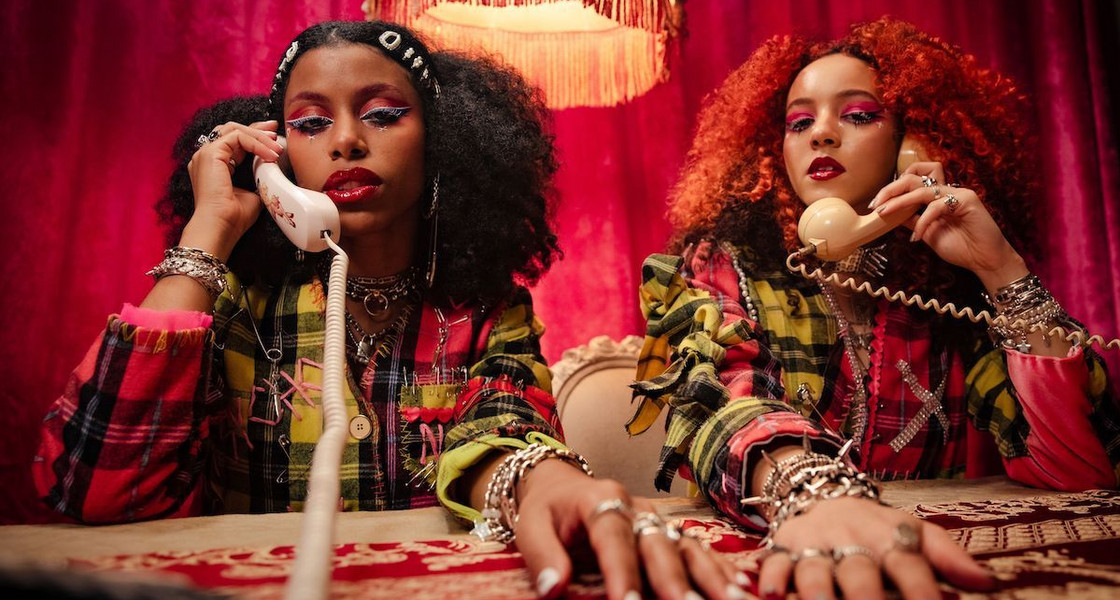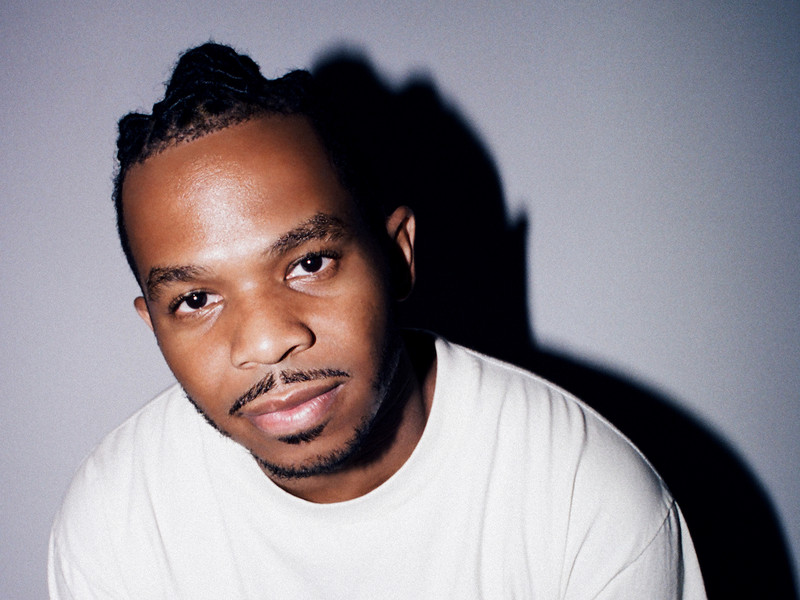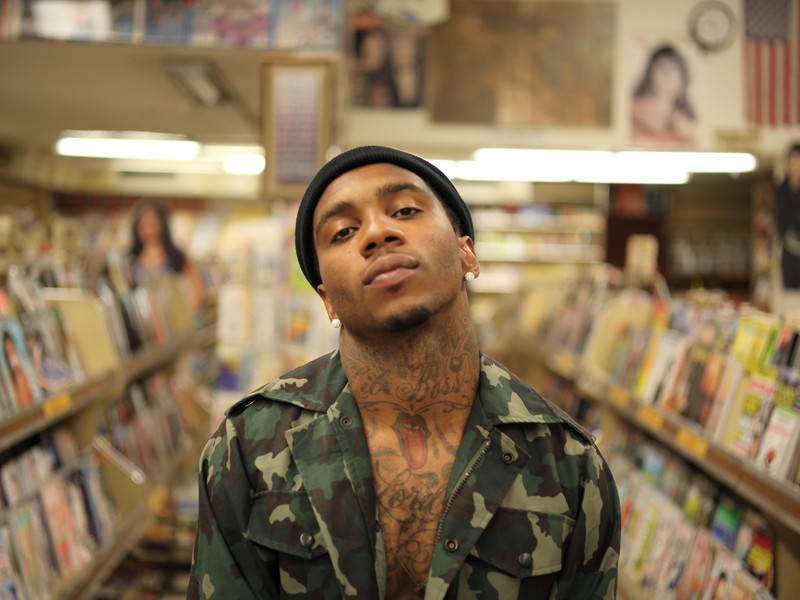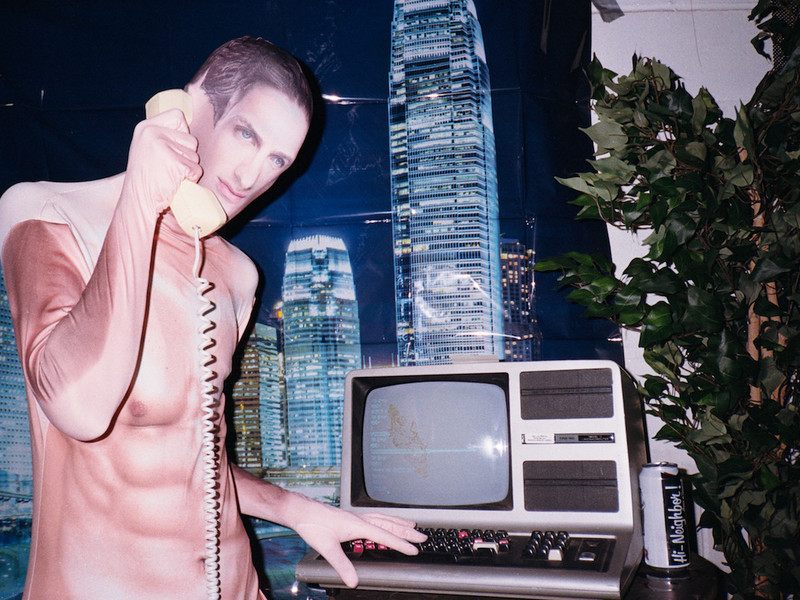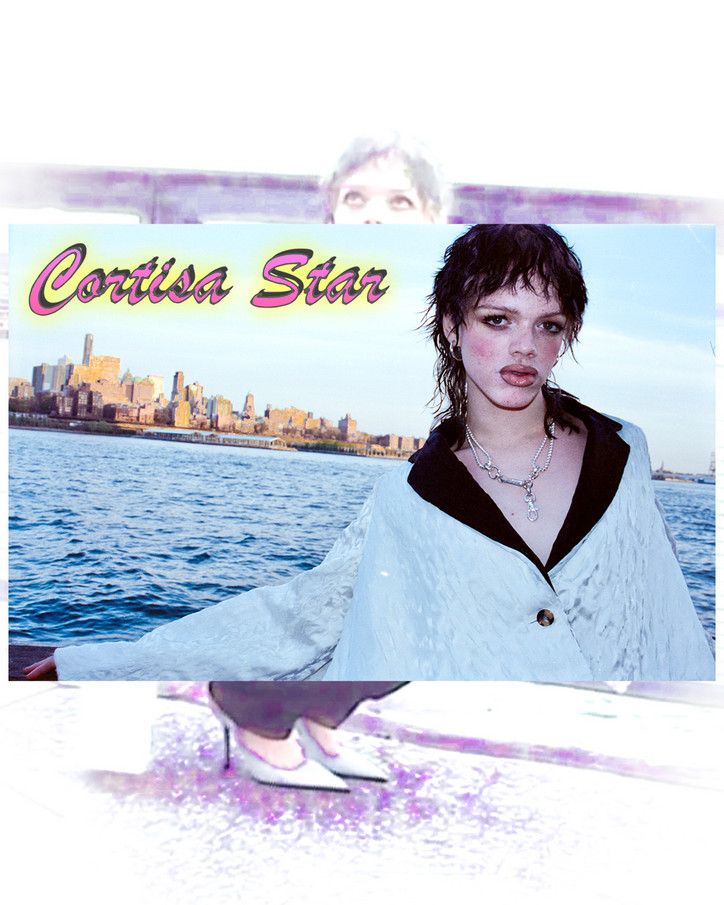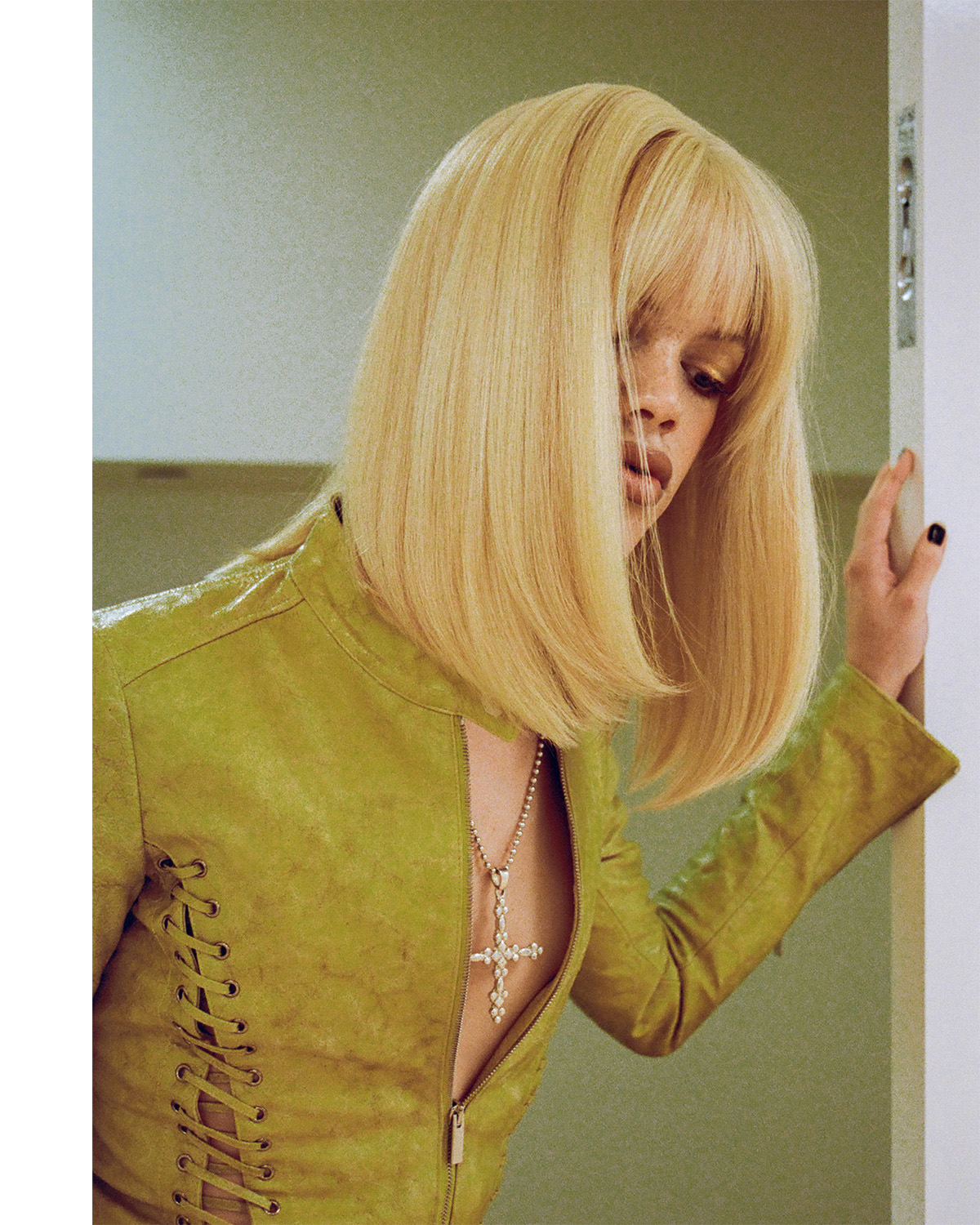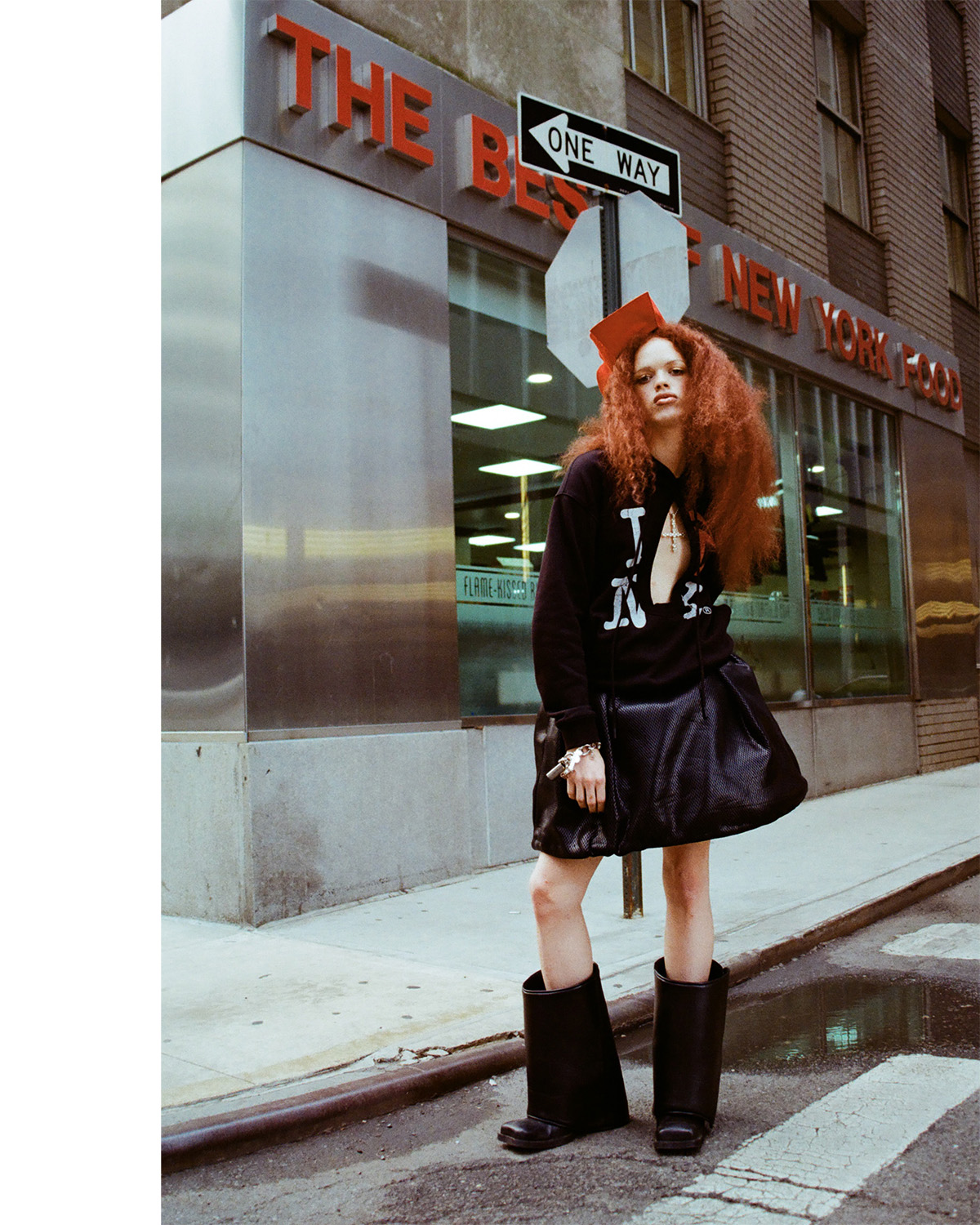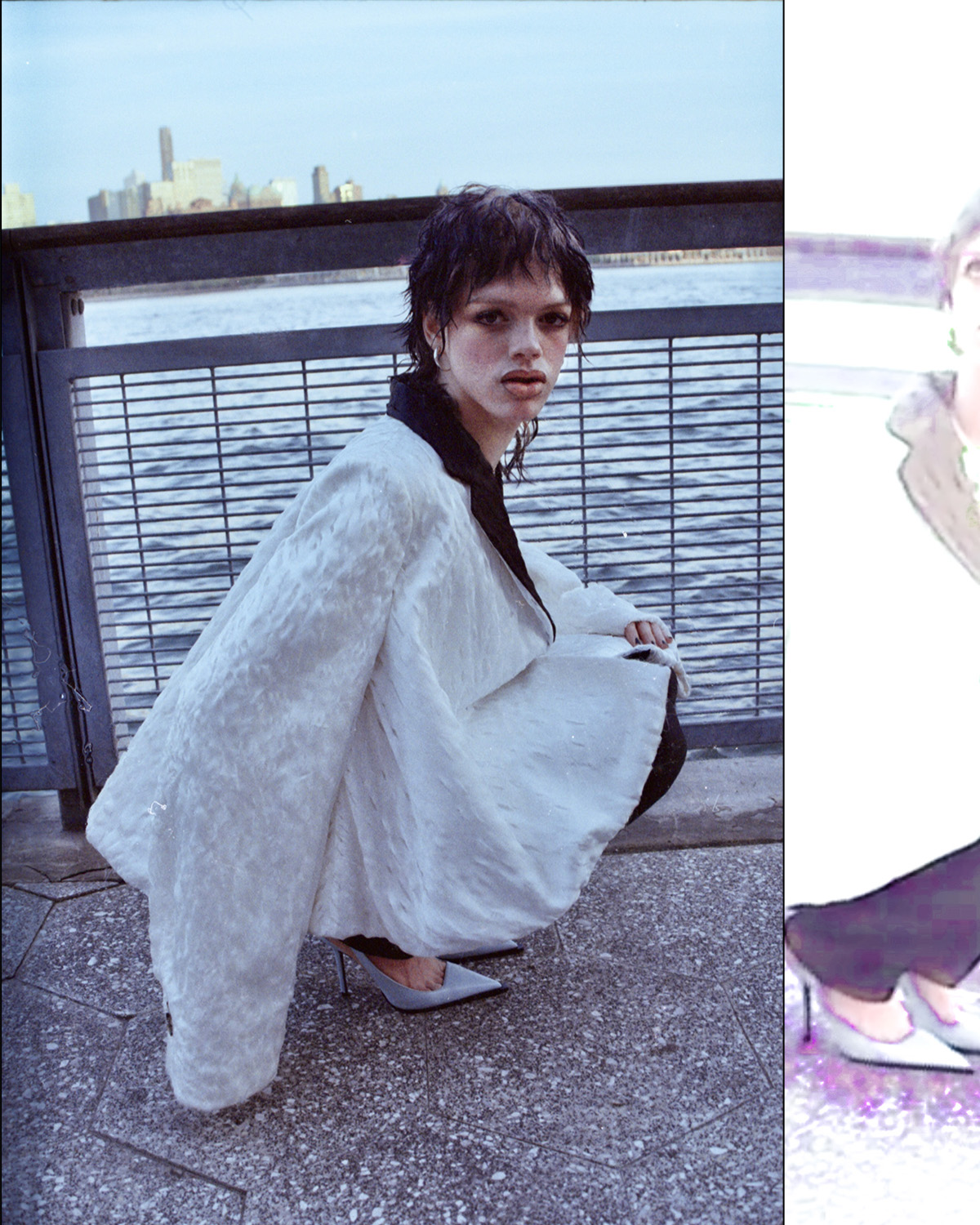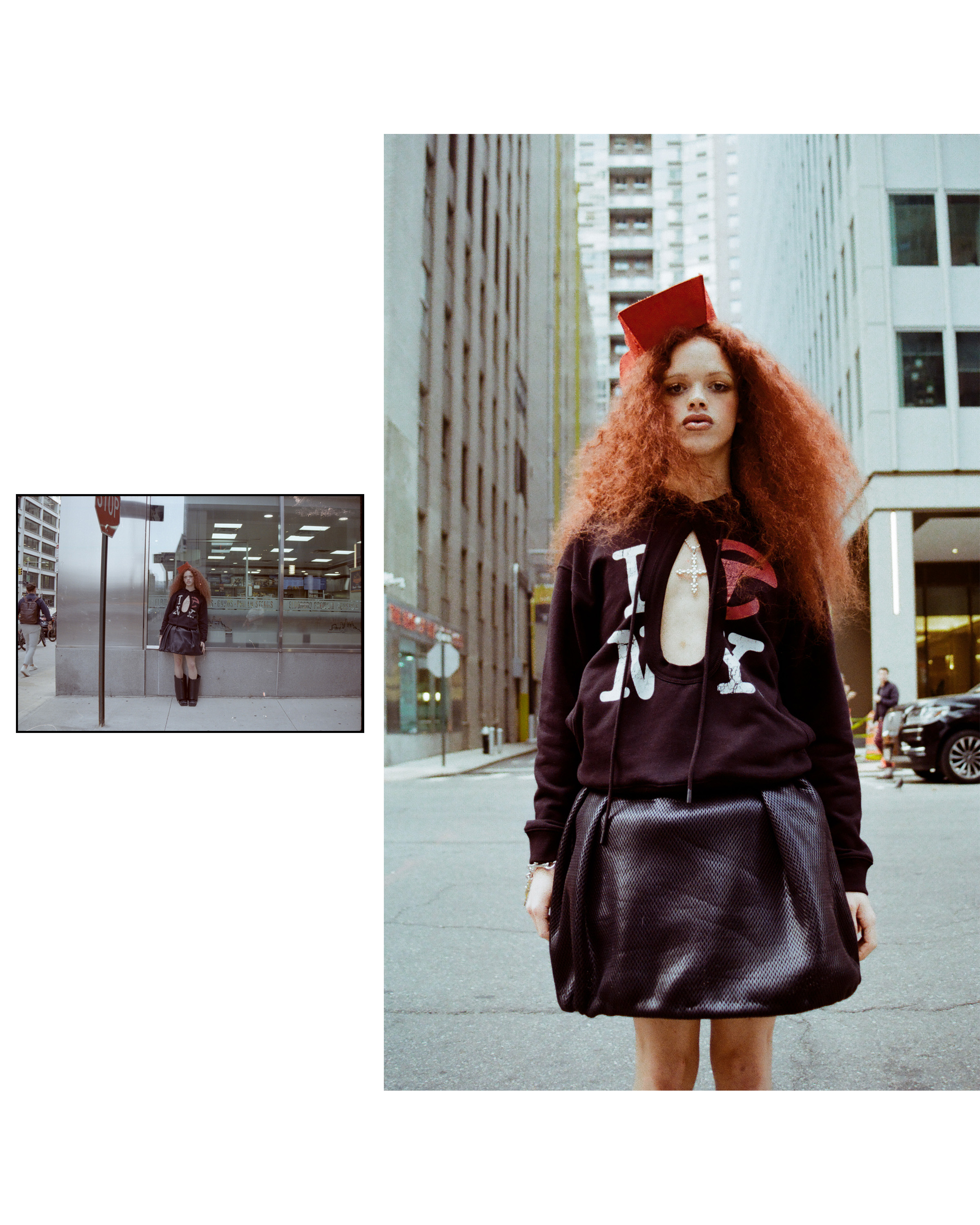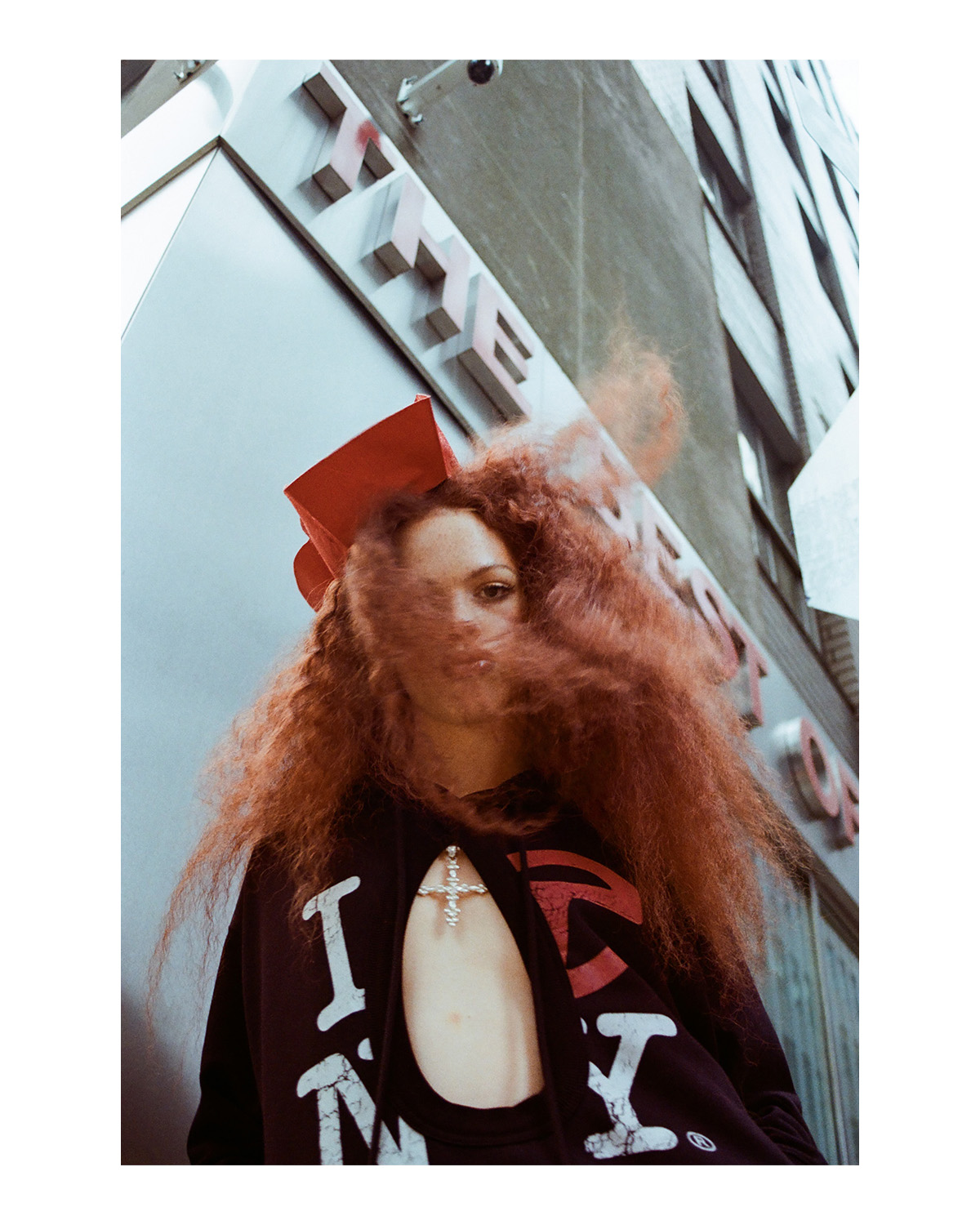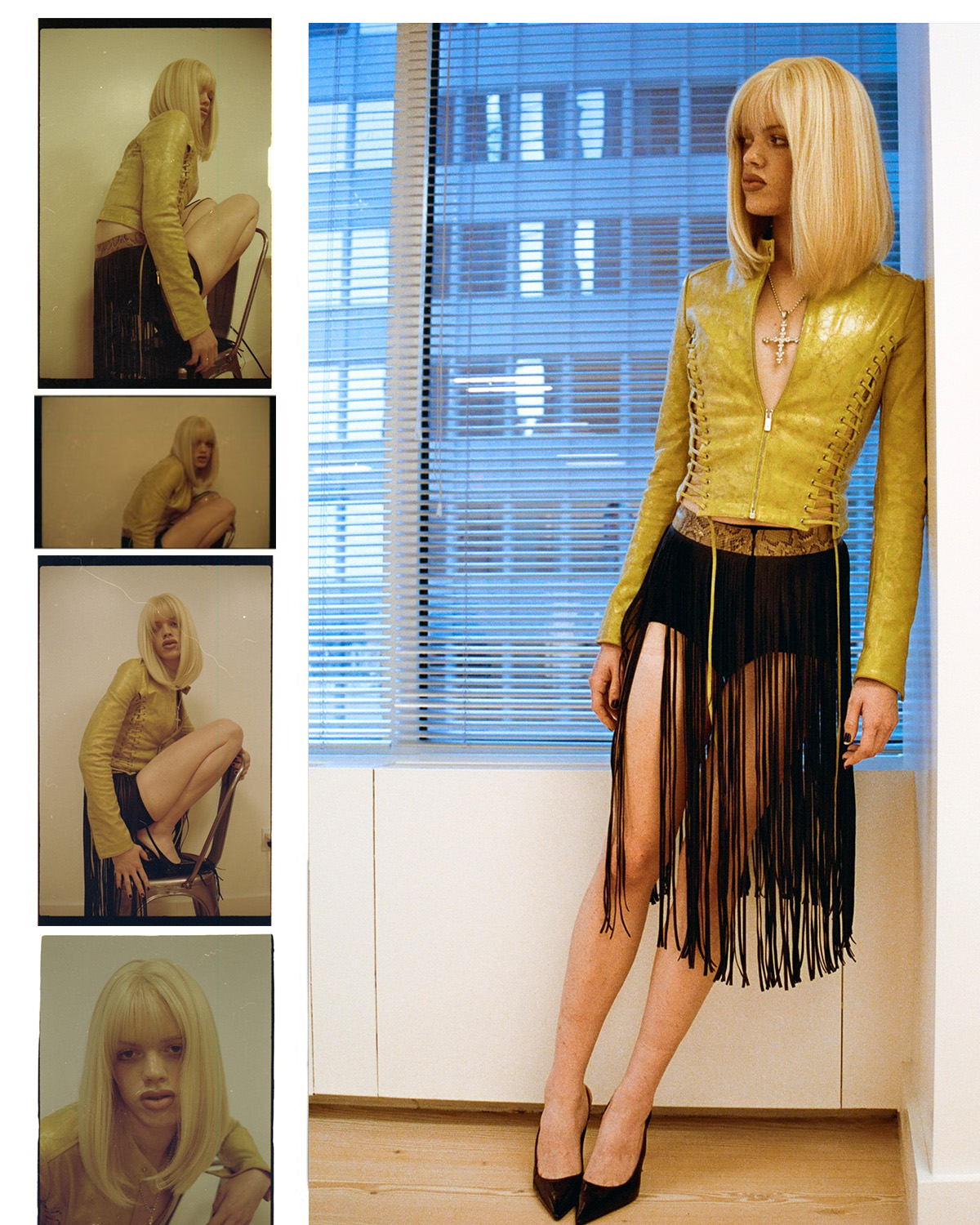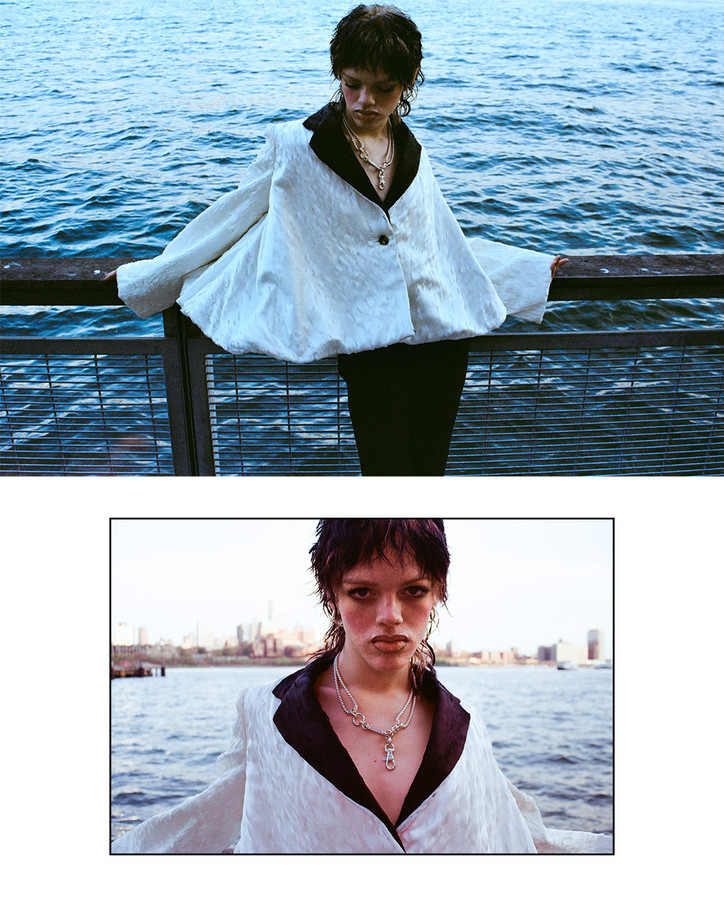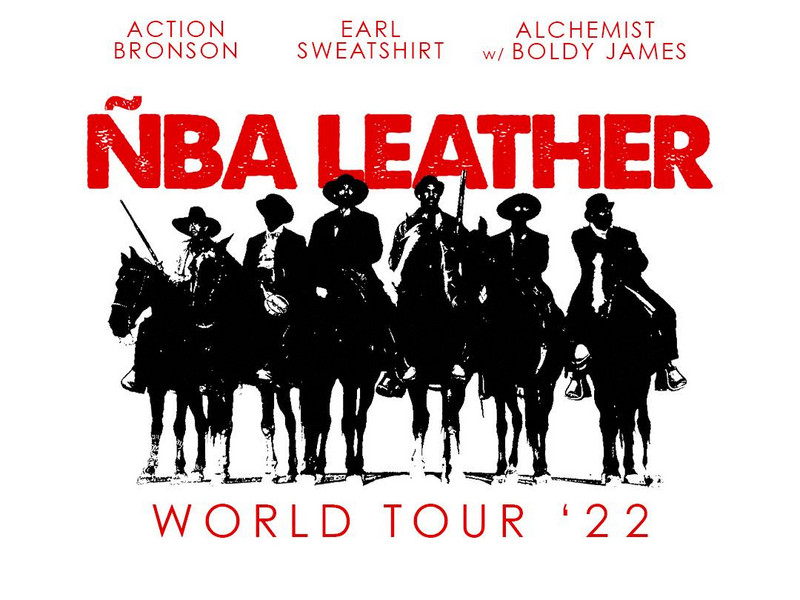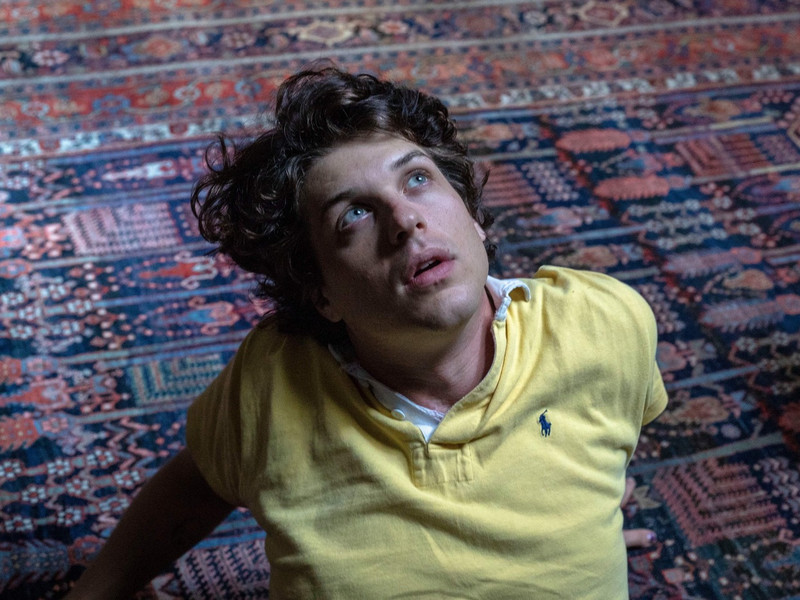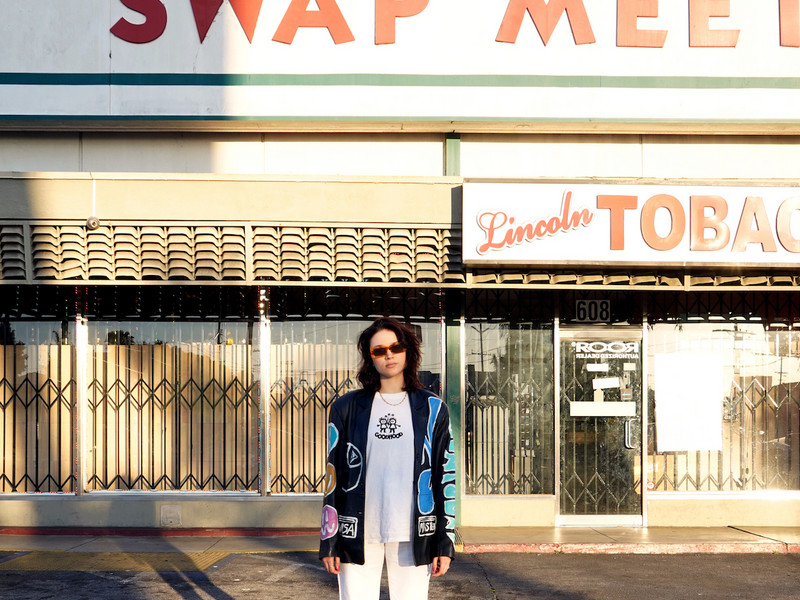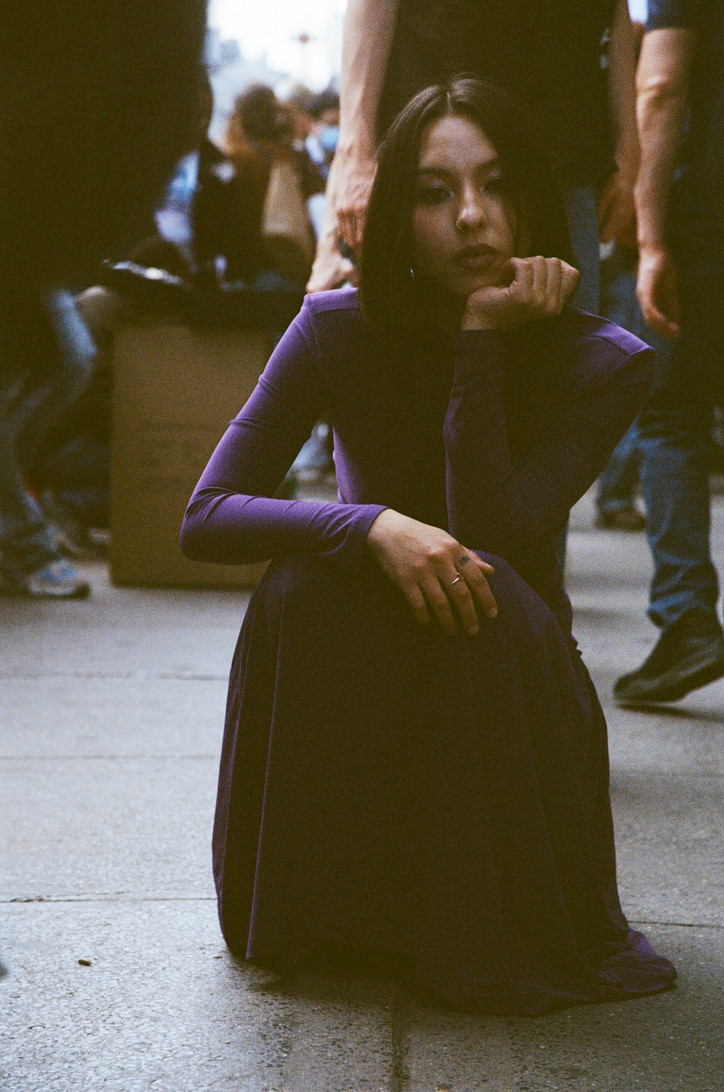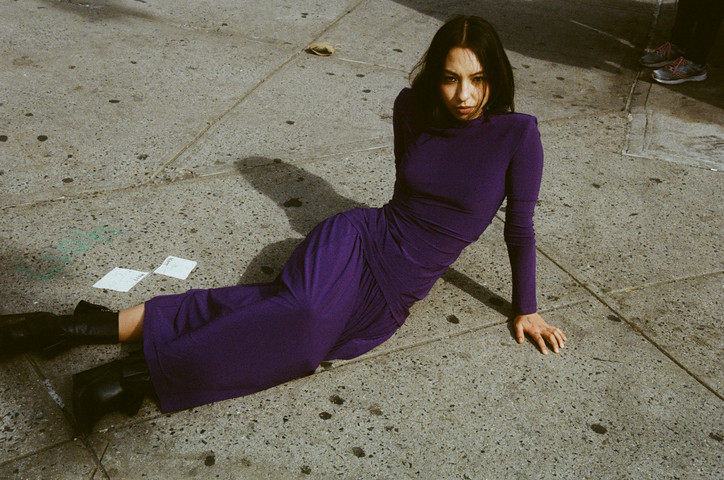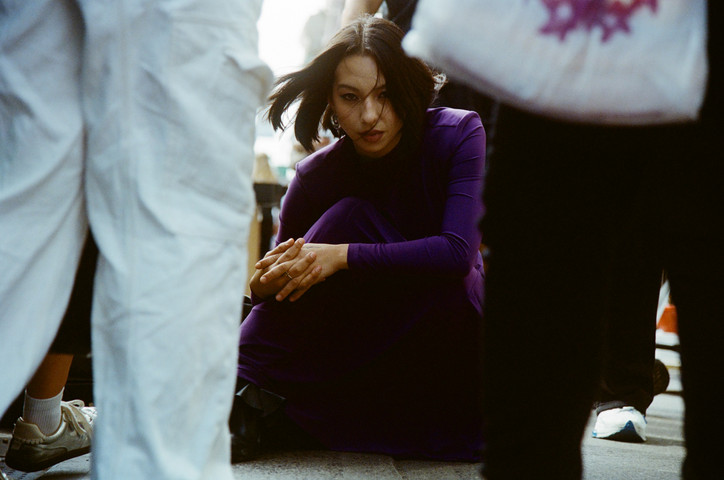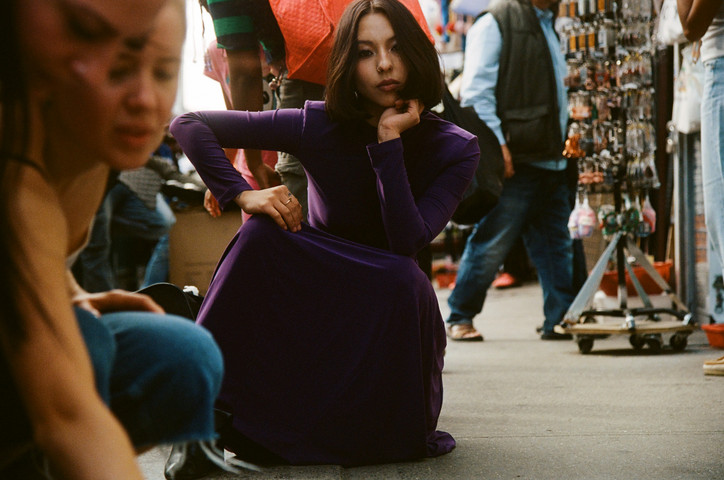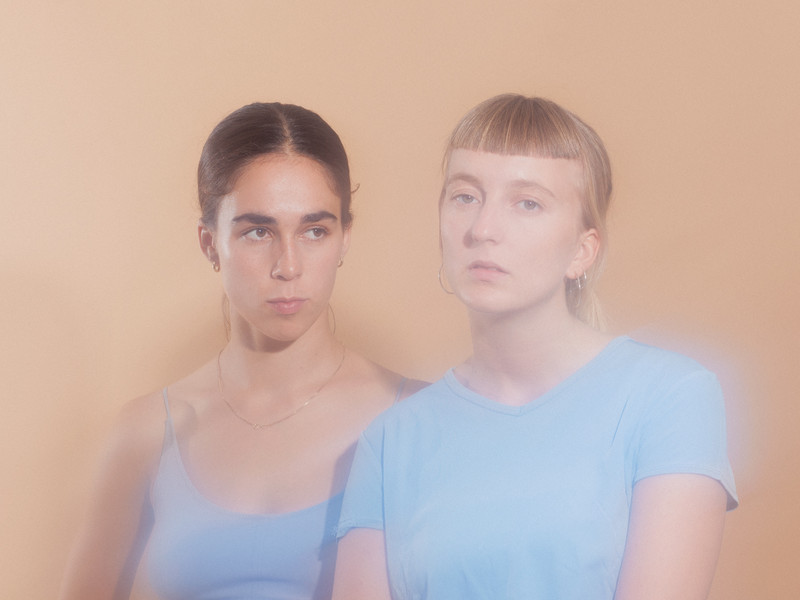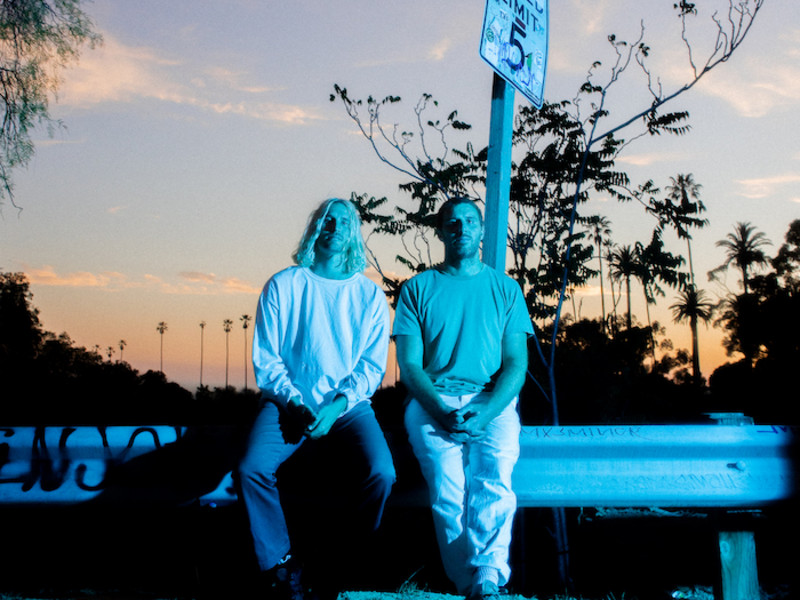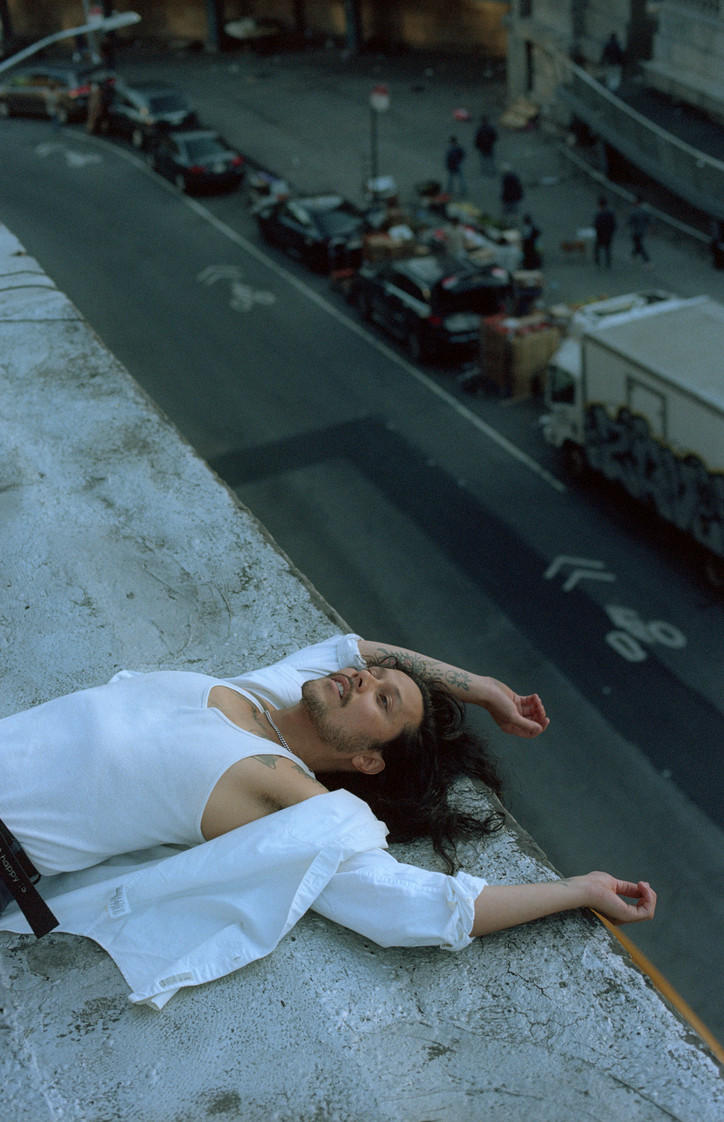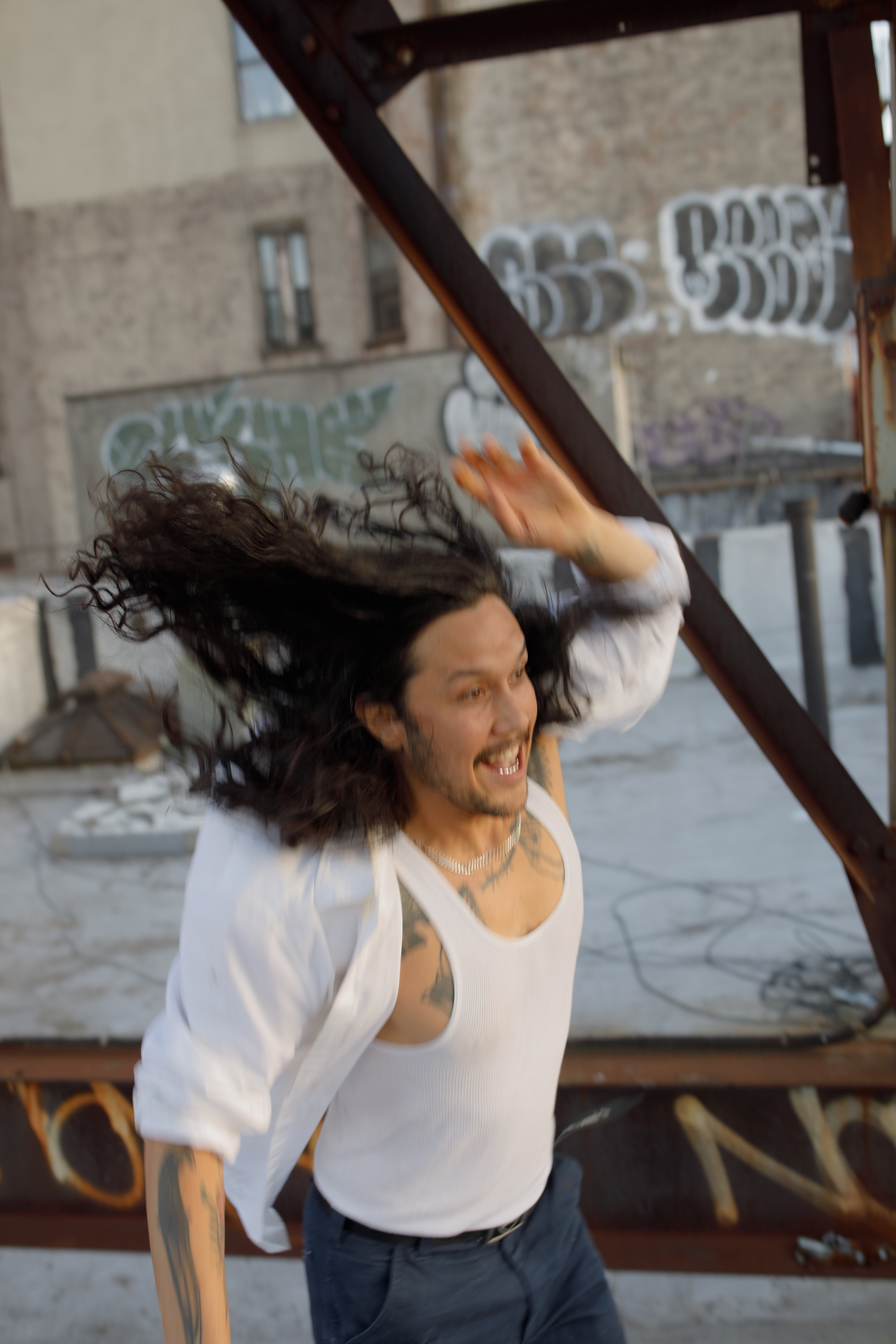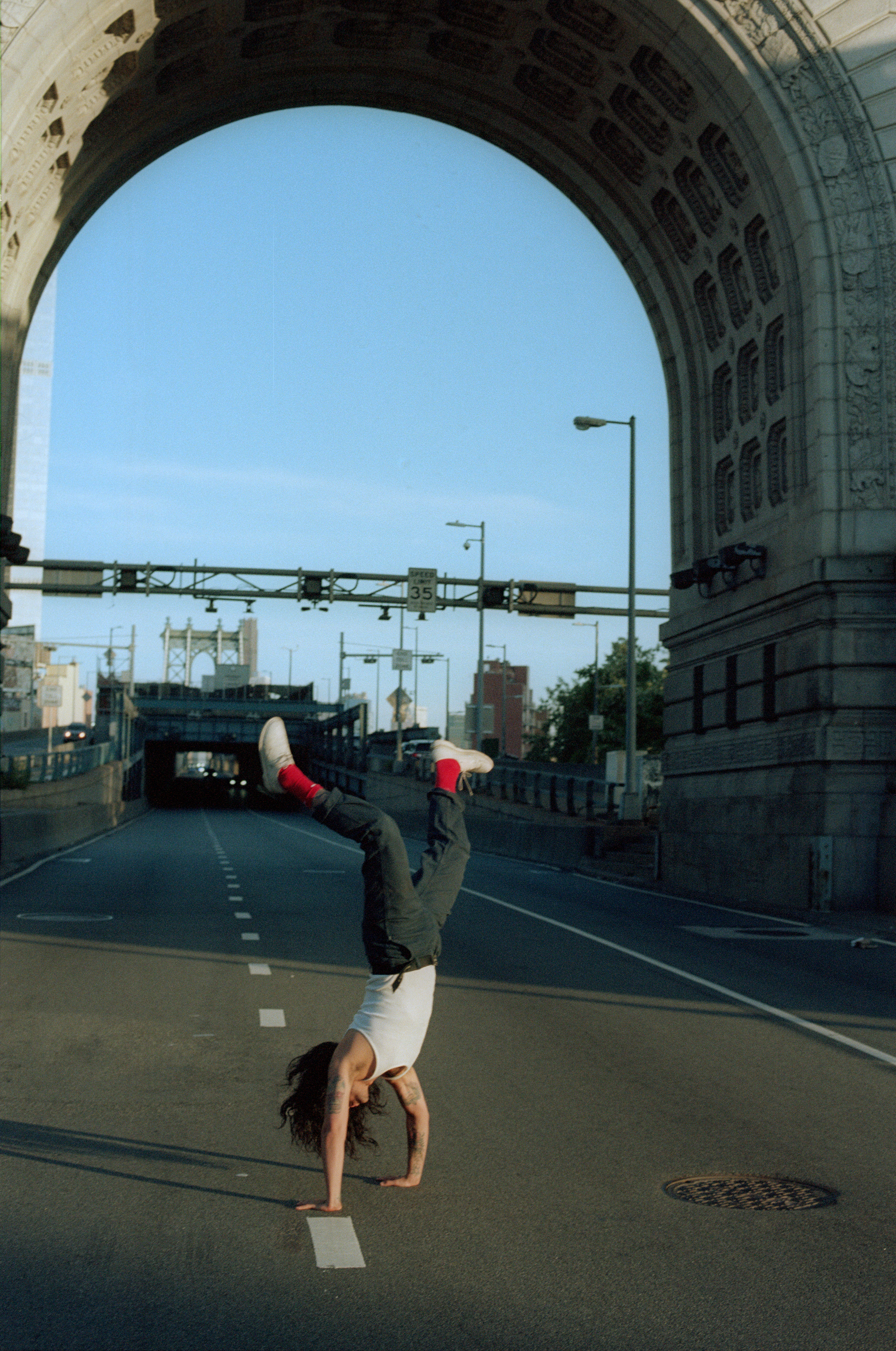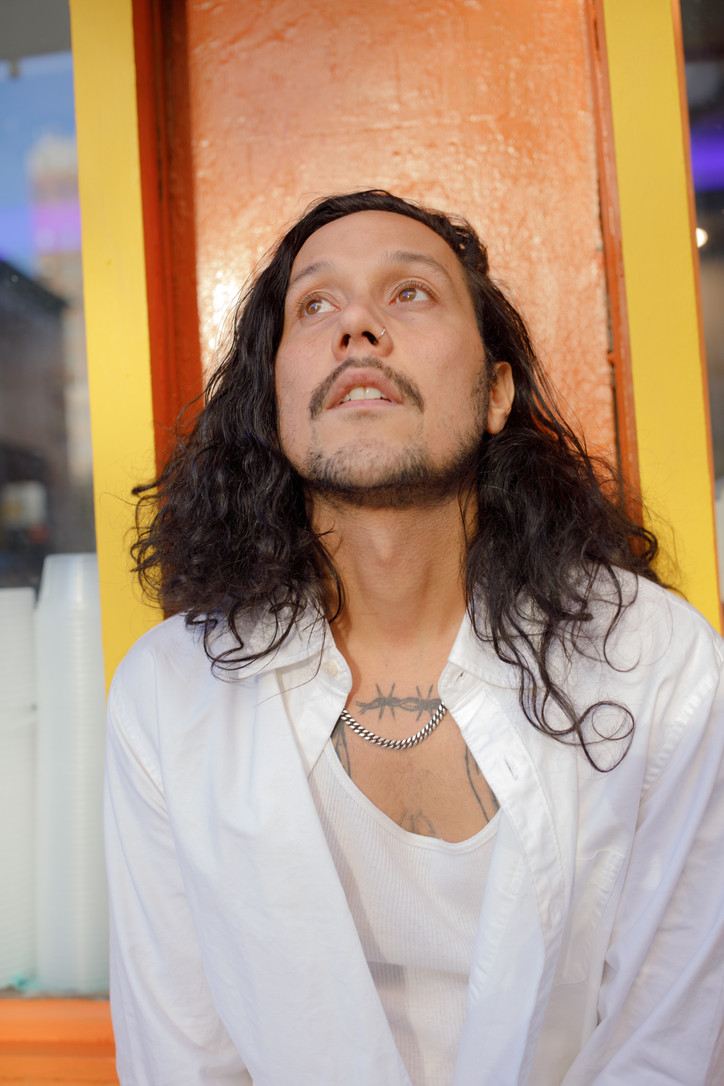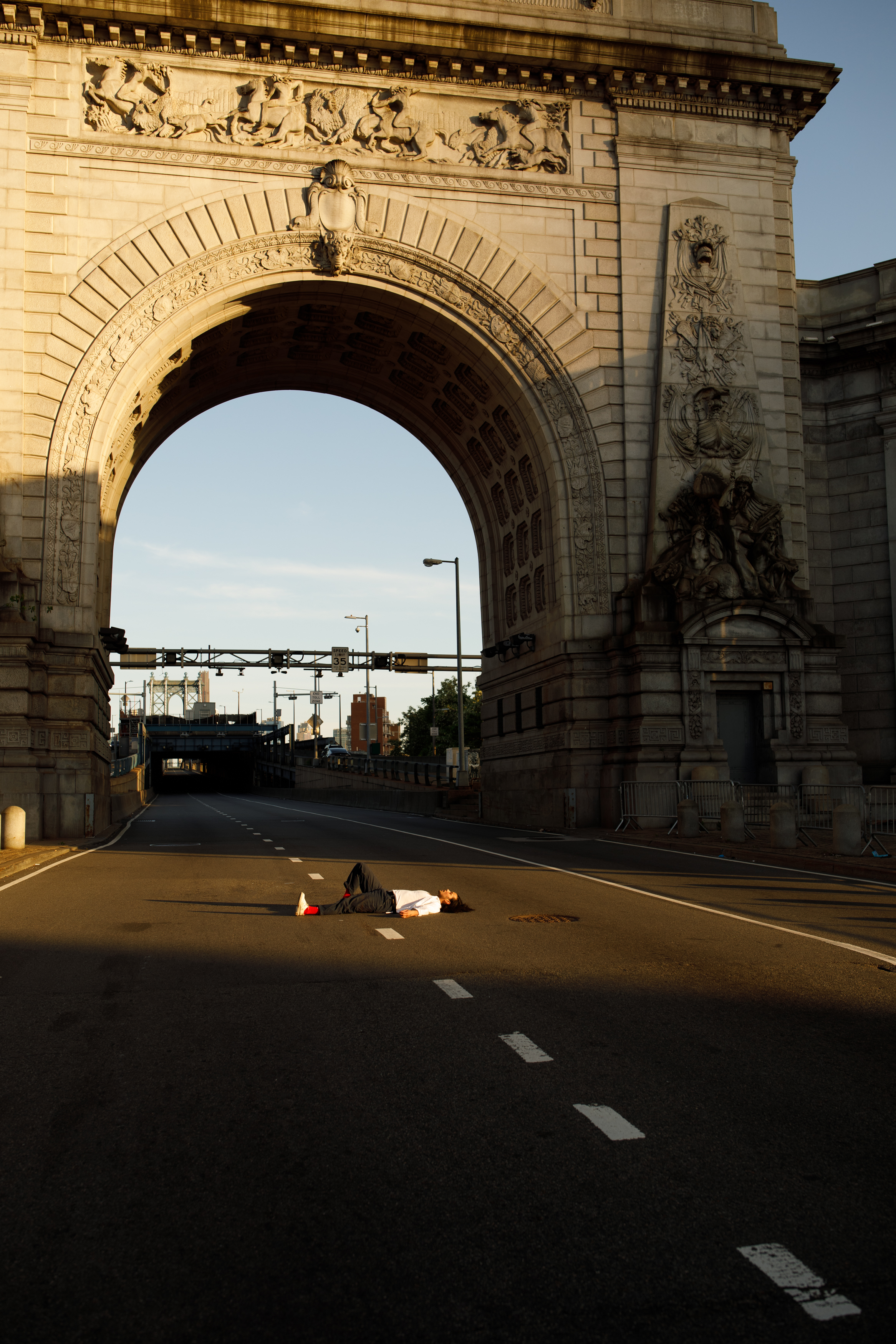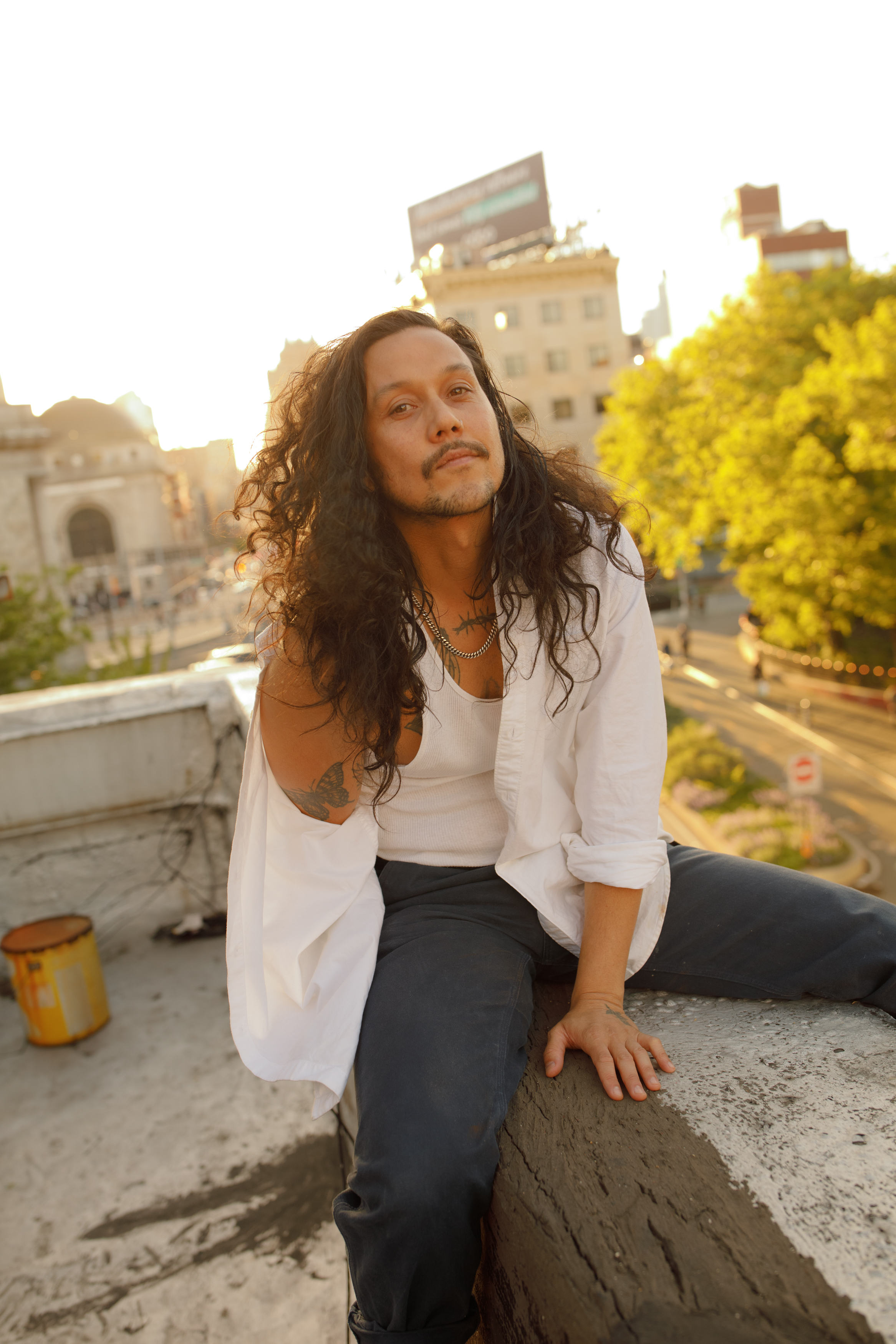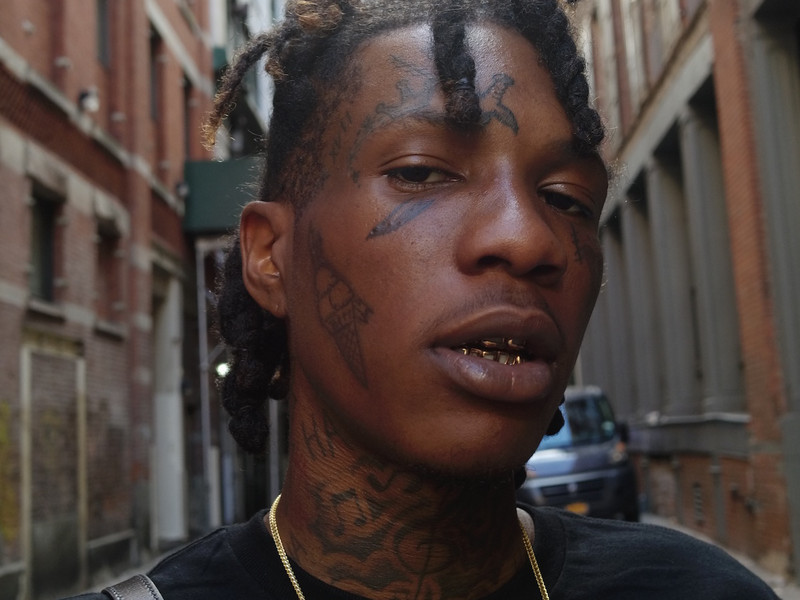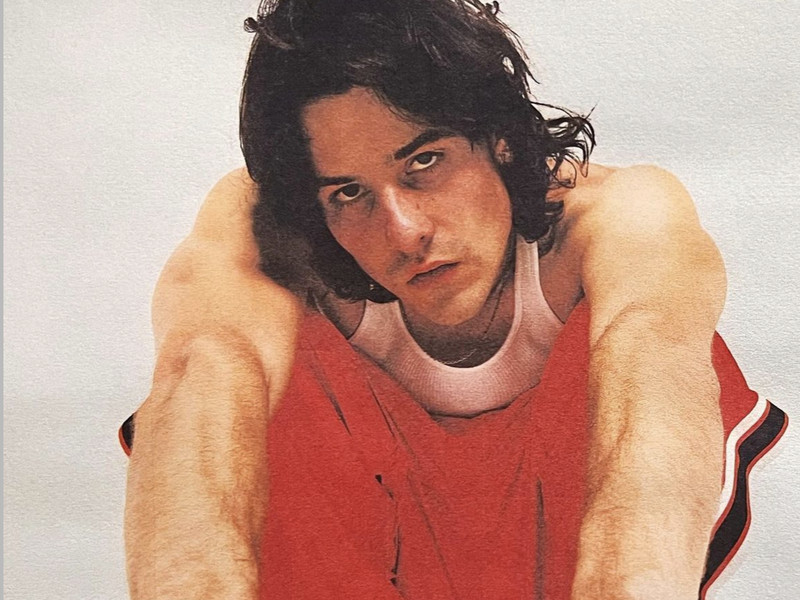Nova Twins Want to Kill their Boyfriends
This month, the musical duo dropped their latest single "K.M.B. (Kill My Boyfriend)," a fiery rock anthem to stitch up any heartbreak. Inspired by 90s pop culture, the Clueless-meets-Pulp Fiction music video follows Love and South on a murderous relationship rampage— sending a warning to all emotionally-manipulative men to watch out.
Additionally, Nova Twins released details regarding Supernova, set to come out June 17, as well as performance dates for their upcoming European and US tour. Over Zoom, office caught up with the up-and-coming band to learn more about their newest single, and what we can expect from them in the next few months.
Continue reading below for an all exclusive interview.
How are you?
AMY LOVE— Good, feeling good.
GEORGIA SOUTH— We're in piles of material because we’ve got a music video tomorrow, and we make all our clothes, so we kind of just have loads of material and just rushing to finish.
Oh wow. You guys make all your own clothes?
GS— Yeah, for all of our videos and stage clothes, yeah. Tell me about yourselves. How did you two come together to form Nova Twins?
AL— So we’ve been family friends for years, and we’ve actually been in a band together for a long time as well. But I basically went to college with Georgia's brother, and then I find just became a part of the family. They're all musicians, like Georgia's mum and dad are musicians. Her dad taught us how to play our instruments. They’re all just a great family, and I just never left, didn't want to leave. I just stayed with them, and Georgia very quickly became like the sister I never had. And yeah, we’re on this musical journey ever since.
GS— When we first became a band. It was very much like a marriage proposal like, ‘Do you want to be in the band?!’ We did this handshake, and were like, ‘Yeah, we're gonna take it seriously. And this is it, ride or die.’ And we’ve been like that ever since.
Sounds a bit like Thelma and Louise.
GS— Yeah, we love that movie. We actually wrote a song all about that movie. We love it.
Your music has been described as a mix of R&B, punk, and electronic music. Who are some of your early influences that inspired your genre-bending sound?
GS— I think we just love all different types of music to begin with, and we come together on certain genres, like the heavier side of music and r&b. I grew up listening to N.E.R.D, I loved Timberland's production, Missy Elliott, the Justified albums. But then, in really early days, I listened to Stevie Wonder, Donny Hathaway, Mariah Carey. Growing up, I think it was just a wide array. And then I loved Late Registration, Kanye West's album; and Dr. Dre's production, so definitely that hip-hop side. But I've been in bands since I was like 12 or 13, so just being on the punk scene, just being immersed in it— that was my way into heavy music. I was literally hiding under bars because I was too young to get in. But it’s cool, the different evolutions of our sound.
AL— I guess when you first get into music, it's usually what your parents are listening to. And mine were listening to people like Toni Braxton, and Whitney Houston, and Mariah, and people like that. But then, as I started to discover my own stuff and what I liked. Now, don't get me wrong, I love Toni Braxton. I would say she's an influence in some of my vocal style. Definitely deep. Yeah. But then, at the same time, you know, Destiny's Child was such a big inspiration, freeing a path for Black women. I was watching them on my screen thinking, 'Wow, I could be that.' Well, obviously, no one could be like that. As a kid, you think you can. And that was really helpful for growth, to be seen in that light. And that then spurred me on to listen to people like Missy Elliott and R&B.
Then, when I was 16, I was going to a music college in London, and that's when I discovered a lot of glam rock and bands that also influenced me, like Noodles, MC5's Kick Out the Jams. I also really got into KISS and just really heavy bands. And at the time, I couldn't play guitar. So I was getting in bands. And also, I was in a band with Georgia's brother at some point, in college and things like that. And then, I was just driven by heavy distorted guitars and things like that. And then eventually, Georgia's just dad taught me how to play a few barre chords, and get on with it. And then it kind of took control from there. Me and Georgia joined forces, and that was it.
You’ve talked about the importance of WOC visibility in the metal scene. With this in mind, what changes have you seen come about in the punk music scene, and what do you still think needs to be changed?
AL— When we first started out, [diversity] was very scarce. We'd turn up to a festival, and be the only women and people of color there. So it was always a bit of a culture shock for us because we got into a band thinking, 'We just want to play music,' and then we came up against all these challenges. We were like, 'Whoa, this is not what we expected.' But for us, that kind of kicking back against that— we really found ourselves and found our power. We really had to dig deep to just accept ourselves and believe in ourselves, so when people tell you, 'No,' you can either listen to that, or kick back against that. So I think we decided just to push through. We've been watching the industry change from then up until now, which has been really since the BLM Movement. We've seen a bit more an increase in people thinking about looking at their peers, looking at their roster, looking at their artists, and being like, 'Oh, we haven't hired anybody. We haven't even looked. We haven't even bothered because we just didn't think about it.' When we were in meetings with people who were actually wanting to change, and just openly saying, 'We just never thought about it. You kind of choose people in your circle who reflect you and, and that was just on our team.' And we were like, 'Okay, well.' I think people then start to diversify, and it's really nice to start seeing the changes, and more artists of color coming through on a very white male dominated scene— let's face it, you know. I think we've still got a way to go, and I think on festival bills, we need to see that more. We don't want it to feel like tokenism; it needs to feel like this is a proper increase because there are so many bands out there.
First album you fell in love with?
GS— I love N.E.R.D's Seeing Sounds. I love the album. I had that on repeat, just constantly.
AL— It would probably be a collection of my mum's records because I remember the Toni Braxton record Secrets that she would play over and over and over and over again. Like first thing in the morning, last thing at night— sometimes I'd be like, 'Mom! Just stop!' But I ended up really liking it, and I was just a young girl. I remember that album being quite significant, and me, remembering all the songs, and listening to them, and then taking it into my teenager life and thinking 'Oh, this is about heartbreak.' There'd be a boy that I'm crushing on, and I'm like, 'I totally get this.' I guess that was the first album. It wasn't necessarily my choice, but I did definitely fall in love with it.
I loved listening to "K.M.B." Can you tell me a bit about the inspiration behind this song?
GS— So I guess this song is reminiscent of our love for 90s R&B and that era, but doing it our way, a Nova way, because it's so sassy. And the music video is inspired by all kinds of movies from the 90s, like Clueless, Mean Girls, John Tucker Must Die, Pulp Fiction— so it's that kind of essence.
AL— It's like a fuckboy horror tune, like Jennifer's Body. It's a horror movie, but put into a song about just naughty naughty naughty guys, I guess, and what would happen if they do wrong? Yeah, it was fun. It was really fun.
GS— It's definitely an anthem for anyone who's been fucked off.
What concepts or feelings do you explore with your music and lyrics?
AL— I think we just take things from our reality, in our bubble. We feel like so much happened during lockdown-- whether it was BLM Movement, things that happened in our personal lives, things that we've experienced together as a unit, or things that we're addressing or talking about-- it all goes in to the music, from the actual music to the top lines. How we're feeling would be how a tone would come out or a lyric would come out.
Tell me about Supernova. What was your creative process for making this album?
AL— I think this album really plays on that kind of yin-yang, light and shade, kind of concept. So something can be so sweet, but there could be a really dark undertone to it, and vice versa. Really just sweet-sour, light-shade-- that's what just takes you on a musical journey from I think the beginning to the end.
GS— In lockdown, we had the time to really just get into the production of things and just experiment more, which was great about the lockdown because if we were just touring, we wouldn't have had as much time to just sit back and think, 'Oh, let's experiment in a different way this way, or this way.' It was a really fun process.
